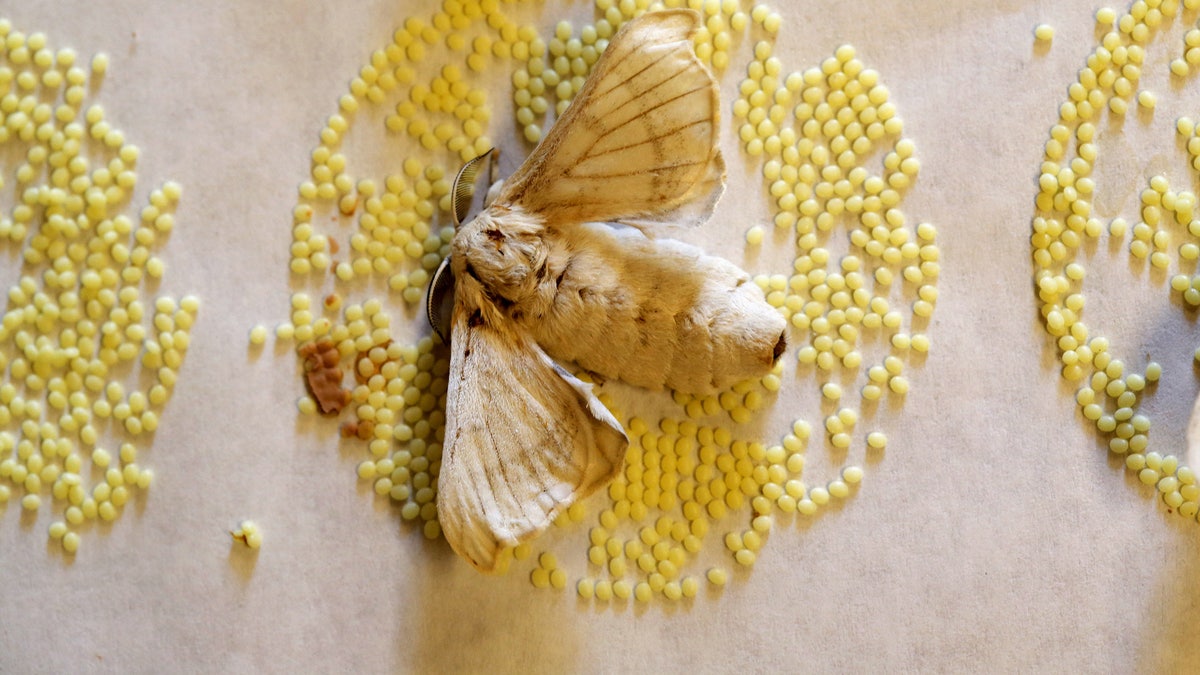
File photo: A silkmoth is seen at the CRA research unit in Padua, Italy, June 4, 2015. (REUTERS/Alessandro Bianchi)
Locust and frog plagues could have nothing on the winged critters that have researchers in the U.K. scrambling to find a solution to a forthcoming moth problem.
The BBC reports that tens of millions of plutella xylostella, or diamond back moths, are presumed to have arrived in the U.K. over the past week, 100 times the normal amount.
Researchers at the Rothamsted Research in Harpenden, Hertfordshire issued an alert in reaction to the pests, which reportedly formed a two-mile “moth cloud,” on Saturday, according to the Twitter feed @migrantmothUK.
Steve Nash, who runs the Twitter feed, told the BBC that the swarm was just the beginning.
Related: Why some flies have mega sperm
“Once the progeny of this influx arrives in mid-July, numbers could be biblical," he said.
The diamondback moth is considered a “super pest” because of its bionic capabilities. It is one of the first crop insects to develop resistance to DDT, according to CABI’s Invasive Species Compendium.
Steve Foster of Rothamsted Research told the BBC that finding the right insecticide to contain the moth population is the next crucial step. One challenge lies in finding the appropriate insecticide for the moths while sidestepping potential harm to other insects. If the right pest killer can’t be found, the country’s cabbage, broccoli, cauliflower and oil seed rape crops lie directly in harm’s way, as the pests will feast on them.
Related: Bizarre ant life rafts have assigned seating
"Hopefully there will be an Achilles heel and one of the insecticides available to growers will work out," he said. "But if you haven't got anything available what you can do apart from sit down and pray, because they are just going to destroy your crops?"
The BBC noted that moth traps have been working overtime. In, Oxfordshire, a trap collected 173 moths in one night, while in Berkshire, over 1,000 moths were trapped over a three-night period.
